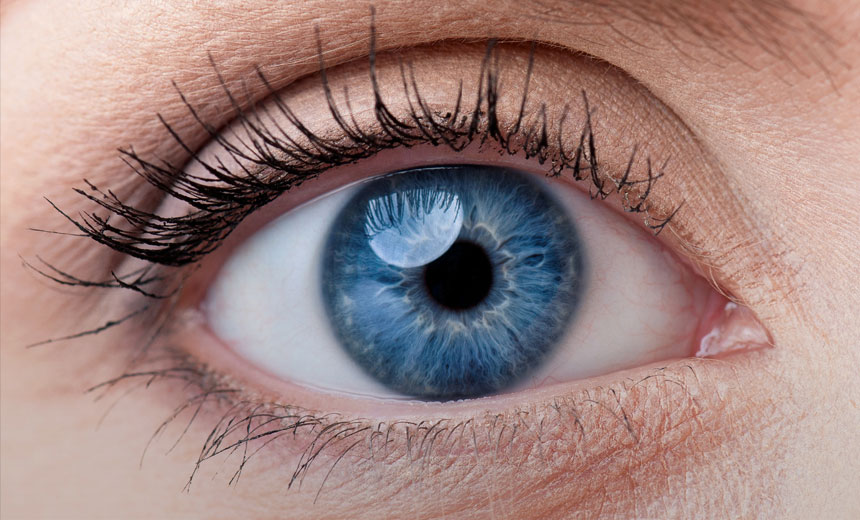In 2020, more and more people are opting for laser eye surgery instead of wearing corrective glasses and contact lenses.
Laser eye surgery is a low risk, minimally invasive treatment with a high success rate – only 1 in 10 patients require additional surgery, and it can be used to treat a variety of eye health conditions, including:
- Nearsightedness (Myopia)
- Farsightedness (Hyperopia)
- Astigmatism
- Presbyopia
- Diabetic Retinopathy
In this article, we’re going to explore these conditions in-depth and identify exactly how laser eye surgery can help.
Nearsightedness
Nearsightedness is also known as myopia – a refractive issue that causes light rays to focus in front of the retina. This results in blurry vision when focusing on distant objects.
It’s thought that over 70 million people (1 in 4) suffer from myopia in the United States.
The good news is that nearsightedness isn’t always very debilitating, and is easily treated. At the moment, there is no cure out there for myopia – but laser eye treatment is an effective way of treating nearsightedness;
A lot of people choose to wear corrective glasses or contact lenses, but more and more people are opting for the more permanent treatment – laser eye surgery. LASIK is the most common laser eye surgery used to treat myopia and is highly effective.
Symptoms:
- Blurry vision when looking at distant objects
- Squinting to see clearer
- Headaches as a result of eye strain
- Difficulty seeing at night
Farsightedness
Farsightedness is also known as hyperopia. This generally means that light rays are aimed at a focus point just behind the retina, which causes blurriness when focusing on close-up objects.
This is caused by the eyeball being shorter than normal, or because the cornea is too flat. This is also treated by glasses, contact lenses, or laser eye surgery.
It’s a similar process to laser eye surgery for myopia – it involves reshaping the cornea using lasers.
Symptoms:
- Close objects appear blurry
- Squinting to see clearer
- Aching/ burning around the eyes
Astigmatism
Astigmatism occurs when the curvature of the cornea is uneven, which causes all images from any distance to appear blurred.
It’s generally worse at night time and can make bright lights seem distorted. Treatment with laser eye surgery has a high success rate and involves reshaping the cornea with lasers. LASIK is the most common form of laser eye surgery used to treat astigmatism.
Symptoms:
- Eyestrain
- Squinting
- Blurry vision at any distance
- Headaches
Presbyopia
Presbyopia is common with aging individuals, generally over the age of 40. It’s a normal eye condition, as our lenses stiffen with age, making it more difficult to focus on something up close.
Almost 2 billion people worldwide have presbyopia, and more and more people are choosing to have laser eye surgery to lessen the effects.
Corrective glasses and contact lenses are ways you can improve your vision when you have presbyopia, but laser eye surgery is a more permanent fix.
Generally, eye doctors will inset a corneal inlay to increase the depth of focus, and reduce the need for reading glasses.
Symptoms:
- Fatigue when reading
- Difficulty reading small print
- Headaches and eye strain
- Needing brighter lighting
- Squinting
Diabetic Retinopathy
This is a complication of diabetes which causes damage to the blood vessels on the retina at the back of the eye.
It’s caused by high blood sugar levels and can result in blindness if left untreated. It can develop in anybody that has type 1 or type 2 diabetes, and shouldn’t present itself if you have good control of your blood sugar.
Your eye doctor will only suggest laser eye surgery to treat this condition if there are significant problems, or if your vision is at risk.
Symptoms:
- Blurred vision
- Impaired color vision
- Vision loss
- Dark areas of vision
- Floaters in eye
- Fluctuating vision
What is Laser Eye Surgery?
Now we understand what conditions laser eye surgery can treat, it’s worth understanding in more detail what the procedure actually involves.
Laser vision correction, also known as laser eye surgery, is a non-invasive surgical procedure that utilises lasers to reshape the cornea at the back of the eye.
This allows individuals with poor visibility to focus better, thus improving their overall eyesight.
Over and above simply treating the conditions we’ve discussed above, laser eye surgery can bring relief to people with respect to many day-to-day annoyances caused by poor vision, including:
- Wearing glasses
- Wearing contact lenses
- Difficulty reading
- Eyestrain
- Blurred vision
- Headaches
How the Process Works
Step 1
The first step of the process is booking in an initial screening with a laser eye surgeon (ophthalmologist), during which they’ll determine your suitability for treatment.
Step 2
Your next step is attending a laser eye surgery consultation, where you’ll be further assessed. At this stage, your surgeon should run through all of their pre-treatment checks.
Step 3
The third step in the process is the surgery itself. This should take no longer than 10-15 minutes for both eyes.
Step 4
You’d be mistaken for thinking that the surgery itself is the final stage in the process. Any reputable surgery will ensure a thorough post-op recovery process is in place.
Summary
There are a lot of factors to take into account when considering laser eye surgery, including the severity of your condition, the recovery, and of course, budgetary constraints.
With that said, it’s no secret that laser eye surgery can offer real freedom to people who have long-suffered with eye-health related conditions; conditions that can significantly impact on the day-to-day lives of sufferers.
If you’re thinking of undergoing laser eye surgery, it pays to do your research. Find a reputable surgery, with plenty of trust factors, such as Google and Trustpilot reviews, read testimonials, shop around, and don’t settle until you’re completely content with your choice.
When it comes to your health and your vision, it’s definitely worth taking your time and making the right choice for you. And if you can help it, try not to compromise on quality for the shake of cost.






